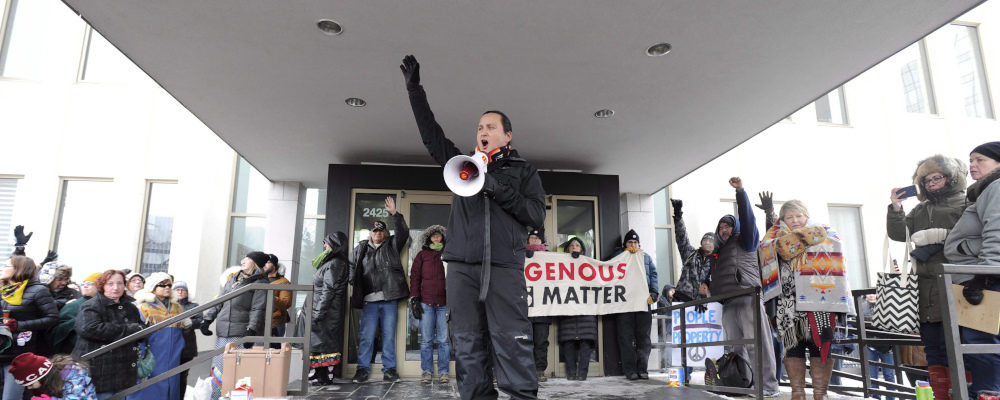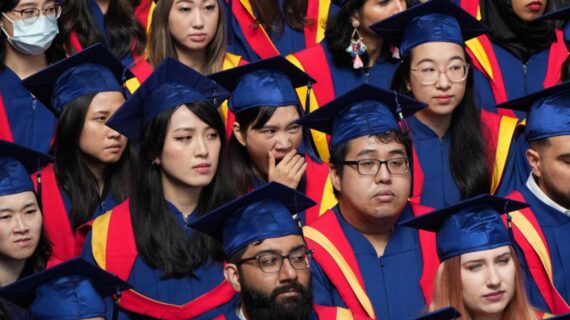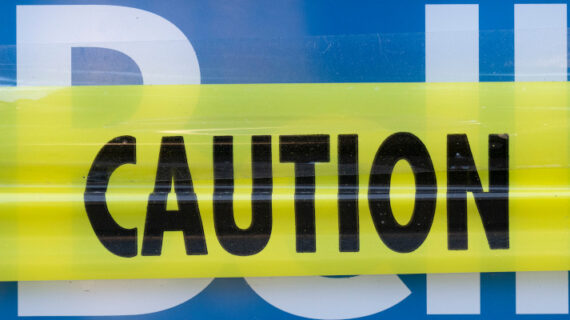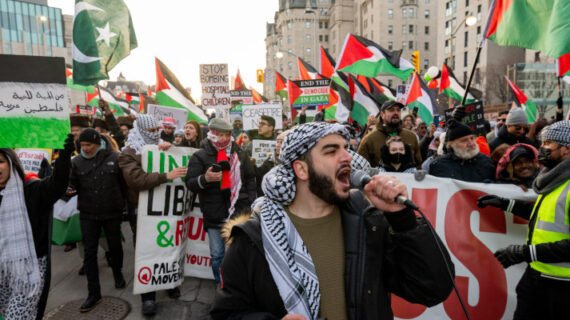For quite some time now, there have been calls to cancel Canada Day. I remember calls escalating in 2017 when Canada celebrated its 150th birthday. Before that, in 2013, when we saw the rise of the Idle No More movement across the country. And other moments stemming from continued injustices and inequities rooted in the Indian Act and other policies.
In recent weeks, the calls have been reignited following the discovery by the Tk’emlúps te Secwépemc First Nation of the remains of 215 children at the site of the Kamloops Indian Residential School. And as more Indigenous communities undertake the work to examine the sites of the 139 residential schools for signs of unmarked graves, the calls to shutdown July 1 celebrations are growing stronger.
Are Canadians wrong to want to celebrate Canada Day this year, and any other year?
MORE SIGNAL. LESS NOISE. THE HUB NEWSLETTER.
In order to understand this, I turned to Google: What is Canada Day?
According to the government’s website, Canada Day is a national holiday which was first celebrated as Dominion Day in 1868 that invited “Canadians across the country and around the world [to] show their pride in their history, culture, and achievements.” It is intended to be a day of unity, bringing the citizens and aspiring citizens together from coast to coast to coast.
But instead of cancelling activities, and contributing to the divide, perhaps Canadians should consider this year’s gatherings to be an opportunity to grow their knowledge, understanding, and respect of each other and the hard truths of our shared history through community dialogue, walks, vigils, and activities rooted in culture and healing.
At this critical time, why would we deny ourselves the opportunity to grow through this hard moment together?
We will continue to face the darker shades of our shared past. New information will continue to surface in the months to follow. As we saw last week with the news from Cowessess First Nation about 751 unmarked graves at the former Marieval Indian Residential School, we are learning that the findings of the Tk’emlúps te Secwépemc peoples were the first of many to follow. As we work towards reconciliation, Canada will continue in its truth-finding journey originally initiated in 2008 through the Truth and Reconciliation Commission.
We must do the hard thing: embrace those truths, together.
It could be that Canadians are ready to do this. A recent poll by Abacus Data reveals Canadians were distraught and furious about the news out of Kamloops.
According to the poll, 72 percent of respondents felt sad, 51 percent felt angry, and 25 percent felt embarrassed when asked how the news about the remains of the 215 Indigenous children made them feel. Among Indigenous respondents, 75 percent felt sad, 63 percent felt angry, and 33 percent felt betrayed.
Cancelling Canada Day seems to be the easy way out.
The findings that have resurfaced these past weeks have not only stirred grief across Indigenous communities, they have shook and awakened Canadians. This Canada Day, and every other from this point forward, we have an opportunity to come together to process these truths, to support one another and to heal together.
“All we ask of all of you listening is that you stand by us as we heal and we get stronger. And that we all must put down our ignorance and accidental racism, of not addressing the truth that this country has with Indigenous people. We are not asking for pity, but we are asking for understanding. We need time to heal, and this country must stand by us,” said Chief Cadmus Delorme as he shared news of the 751 unmarked graves that were found outside of the residential school in Cowessess First Nation.
And, perhaps the most hopeful point of data, 49 percent of all respondents indicated that this news has changed their views and that they have “a new appreciation for the damage residential schools caused Indigenous people and [they are] going to care far more about it in the future.”
This is Canada’s moment of reckoning, the moment to not only stand with Indigenous communities, but most importantly, to take steps to end the awful status quo. Canadians have an opportunity to ensure that things are different this time, tapping into their sadness, anger, and embarrassment to fuel efforts to move this country beyond empty promises and platitudes, to action.
“Starting now, we all have an opportunity to show leadership, courage and conviction in helping heal the wounds of the past as we make a path towards a more just, more fair and more loving country,” said Murray Sinclair, a commissioner and chair of the Truth and Reconciliation Commission, in 2015.
Cancelling Canada Day seems to be, in my view, the easy way out. And the people I know don’t take the easy way out. They face challenges with courage. They take ownership and are willing to do the hard work to build a better Canada.
As my Dad said to me one Saturday in spring of 1994 when I asked him what he wanted me to do around the yard. He replied, “Take a look around the yard. There’s a lot of work to be done. Pick a job. Grab a shovel or a rake. And get to work.”
I say the same thing to Canadians now.
Canadian leaders and citizens alike can turn to the Truth and Reconciliation Commission’s 94 Calls to Action to “redress the legacy of residential schools and advance the process of Canadian reconciliation.” While the calls to action call on all levels of government to work together on a number of fronts, Canadian citizens can hold leadership to a higher standard and demand action to ensure that laws and policies are changed and regulatory bodies that have First Nations at the table are in place.
Every year, Canadians gather to celebrate Canada proudly, but pride is something that happens after you’ve worked long and hard towards an outcome.
The outcome, in my view, is when my nieces and the next generations of Indigenous children can walk this country with their heads held high knowing that their family’s history — the proud history of the Anishinabe peoples — their ingenuity, knowledge of the land, entrepreneurial spirit, and strength are recognized and celebrated.
Some can say that we have done that, others will say no.
Remember that the past cannot be changed, but the future can, so let’s start the hard work of building a better Canada, one that we can reflect on with pride every July 1.




